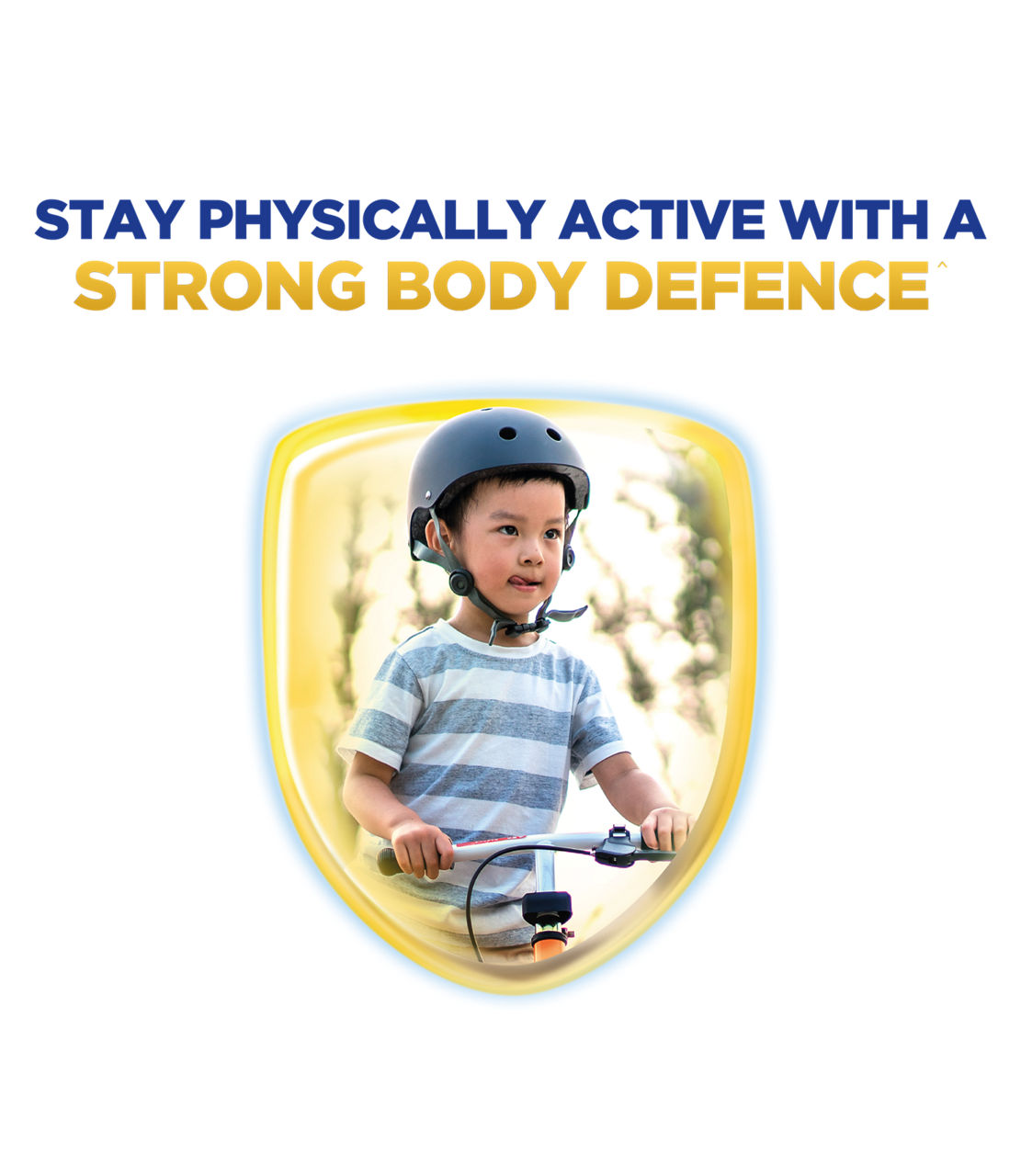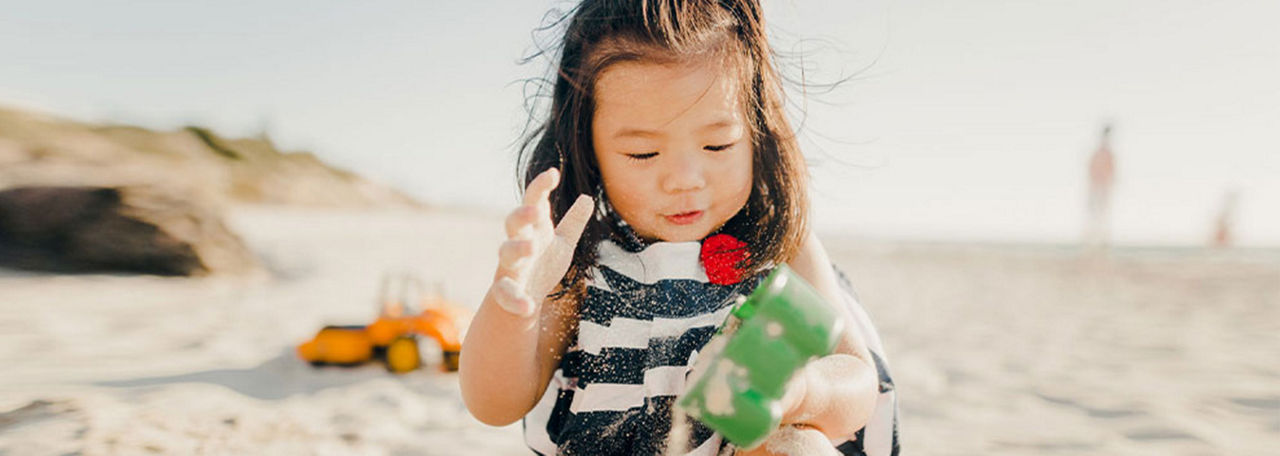Danone Specialized Nutrition (Malaysia) Sdn Bhd supports exclusive breastfeeding for your infant’s first six months of life. After six months of age, infants should receive age-appropriate complementary foods while breastfeeding continues for up to two years of age or beyond. Consult your doctor before deciding to use infant formula or if you have difficulty breastfeeding.
Children today spend roughly half an hour a day playing outdoors. That’s half the time their parents did! Would a bit more time in the fresh air work wonders for our kids? If the research is anything to go by, then it’s a firm ‘yes’.

Dirt: Your Toddler’s (Surprising) Best Friend
The hygiene hypothesis claims that, over time, western civilisation has become much cleaner and focused on removing harmful bacteria from our environment.
However, as a consequence of this over-cleaning, we’re no longer exposing children to enough dirt and germs to kick-start a well-functioning immune system. Yep, that’s right. The precise things we think will do our little ones harm are, in fact, the things that strengthen their immunity against things like asthma and allergies.
It works in a similar way to a vaccination. By introducing your child to certain strains of Mother Nature’s bacteria and viruses at a young age, the body is able to practise appropriate responses and begin building its defence system accordingly.
There are, of course, additional factors that are important in supporting the developing immune system; of which one is nutrition.
Nutrition is one of the most easily modified factors during early childhood. The best way to make sure your child is getting the right balance of nutrients to support the developing immune system is by offering a wide variety of foods from the main food groups. Young children’s diets should aim to include important minerals such as Zinc, Magnesium and Iron, and vitamins A, B, C, D, E and K. Most of these can be found in leafy greens like spinach and kale, whole grains, dairy and fish, like tuna and salmon.
A growing up formula milk like Aptamil™ KID with 50 years of pioneering research helps to supplement their diet as it is enriched with ingredients such as Zinc, vitamin A and vitamin D with the added benefits of patented combination of Prebiotics and Probiotic. A growing up formula milk should be consumed as part of a balanced diet or can be added to foods or baking as a milk alternative.
Why The Great Outdoors Is So Great For Kids
Serving up a mud pie or two isn’t just good for your little one’s immune system. Reams of research also confirms time spent exploring nature’s back garden is essential for establishing the foundations of social, emotional and academic learning, as well as physical development.
It strengthens the body…
Vitamin D3 is important for bone and muscle development, but it’s virtually impossible to come by sitting in front of the living room TV. Exposure to sunlight is needed to stimulate the body’s production of Vitamin D3 and there’s nowhere better to catch some rays than the great outdoors.
…and the mind
Being out and about in nature is amazing for child’s state of mind, with research showing it has a capacity to reduce aggression, stress, depressive symptoms and anti-social behaviour.
It helps form their executive function
A well-developed executive function enables children to plan, prioritise, self-regulate, adapt and multi-task. Outdoor play gives children the freedom to enjoy unstructured time where they can practise all of these skills with minimal restrictions.
It cultivates creativity
By age 5, 98% of children score at the creative genius level1. But by age 10 that drops to just 30%1, as play time turns to more technology-focused activities and ultimately decreases. Outdoor play has the capacity to reignite kids’ imaginations with a stick that becomes a cooking utensil, a magic wand or a sword. Or a challenging tree climb that presents an opportunity to take new risks.
It reduces the risk of poor vision
Sounds unlikely? Well, one study found just an extra 45 minutes a day outside reduced the risk of short-sightedness by 10%2.
It sparks cognitive development
Interacting with natural surroundings has been found to improve memory. Plus, when combined with the opportunity of real play (the kind that’s active, physical and self-directed), results in better concentration skills post-play, too.
Bringing The Outside Into Play
Start your own immuno-session
Create a healthy ‘germ exchange’ by organising picnic play dates with larger groups of parents and their little ones. Sharing toys and a greater chance of physical contact makes play groups a breeding ground for good and bad bacteria.
Visit animal farm
Children who regularly come into contact with farm animals have been found to have significantly lower rates of asthma and allergies. Some of the popular places your child be in contact with animals are Farm in the City, Butterfly Farm and Tabin Wildlife Reserve.
Exploring the world
Expose your child to the wonderful experiences in the world. Not only it helps build their immunity through the exposure of the germ in the outdoor. It also helps build their resilience!
Reference:
1. Land, George & Jarman Beth (1992), Breakpoint and Beyond: Mastering the Future Today. Harpercollins Publishers
2. Repka MX. Prevention of Myopia in Children. JAMA. 2015;314(11):1137–1139. doi:10.1001/jama.2015.10723

Connect with our team of experts
We provide advice and support for you on your parenthood journey.

